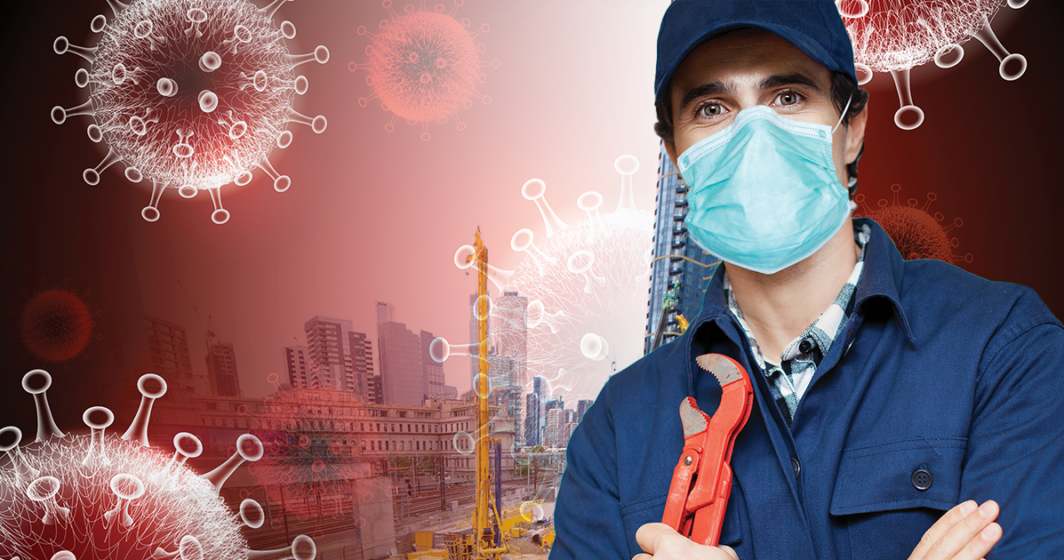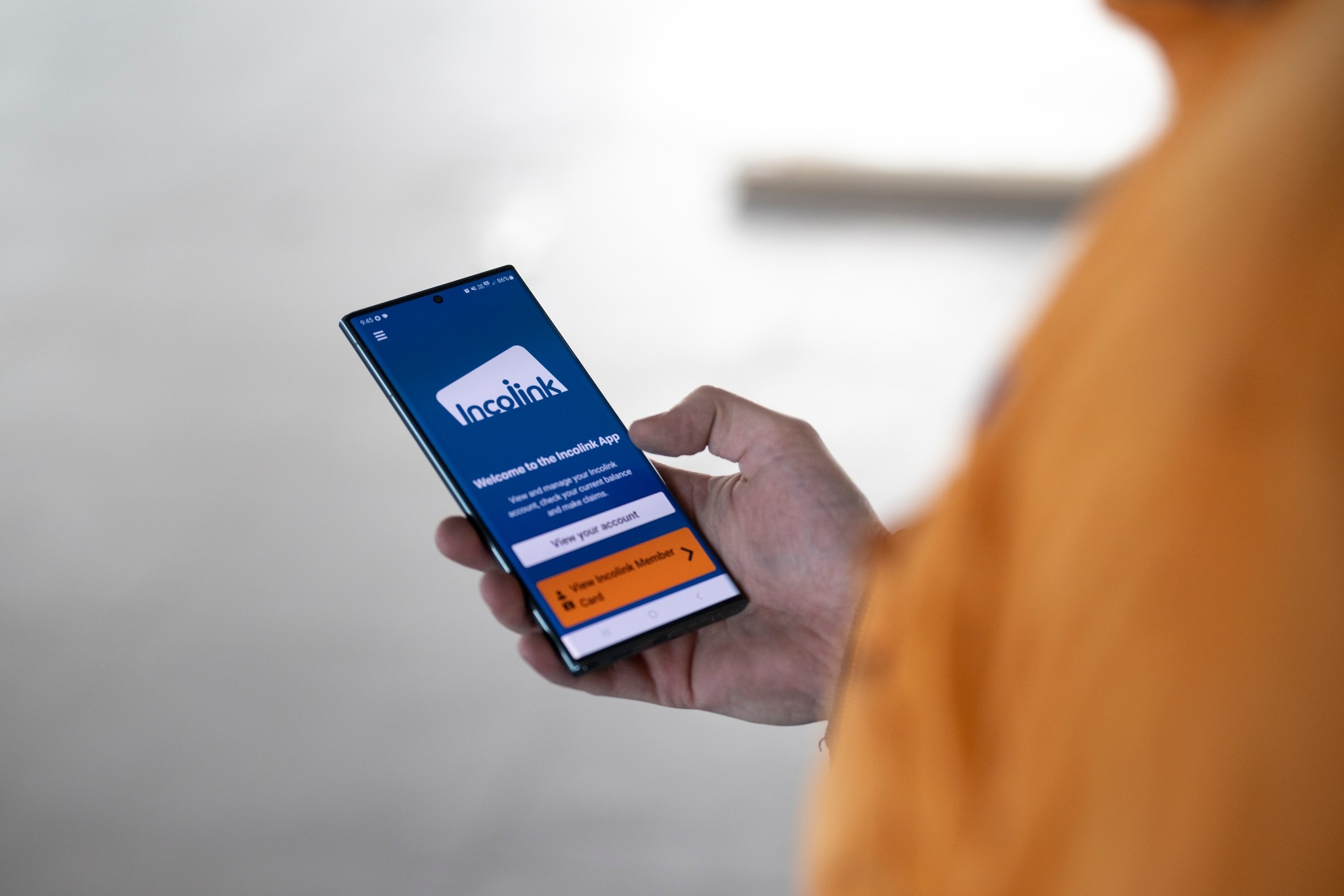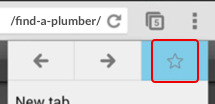The ripple effect of the pandemic is already hitting some businesses. Kate Jones reports.
The rapid spread of coronavirus has changed the way the world works and has shaken up Australia’s plumbing industry.
Financial pressures have forced some employers to retrench workers and for others, the closure of many businesses around the country has limited their flow of work

But for many, the regulations around social distancing are perhaps the biggest hurdle for plumbers amid the pandemic. With an emphasis on ‘flattening the curve’ of coronavirus cases, Department of Health rules mandate people staying 1.5m away from each other to minimise the risk of infection.
This throws a lot of plumbing work into question with everything from sharing a ride to work, to lunch breaks now under social distancing scrutiny.
Yet, Master Plumbers’ Chief Technical Adviser Gary Bath said, many plumbers had adapted quickly to the health measures imposed by COVID-19.
“Similar to the broad impacts the virus has had on every facet of our community, it has varied within the plumbing industry depending on the sector of the industry,” he explained.
“Larger commercial projects have slowed down or stopped to accommodate the requirements for maintaining personal distancing, while the servicing and maintenance sector has possibly seen little change in terms of workload.
“However, many non-essential retail and office environments are closed down and this has also had an impact on that sector as well.
“Plumbers in general are aware of the importance of hygiene and PPE (personal protective equipment) in the majority of their everyday work so some of the new requirements have been adapted to by plumbers fairly readily. With the focus on ensuring that the virus cannot be readily transmitted, it has emphasised the importance of maintaining our high standards for water, sanitary and HVAC (Heating, Ventilating, and Air Conditioning) systems.”
Bath said some plumbing businesses had fared worse than others.
“Obviously there have been sectors of our industry that have been very heavily impacted,” he said.
“Cancellation or postponement of projects and a slow down in building permits will lead many plumbing operations to reduce current staffing levels or stand down operations temporarily.”
The Australian Government has responded to the crisis with a range of economic stimulus packages including JobKeeper payments. The $1500 fortnightly payments apply to employers whose turnover has been reduced because of the coronavirus.
In further measures for financially distressed companies, the government has increased the instant asset write-off threshold to $150,000 for assets that are either installed or ready for first use by 30 June 2020.
With the global shortages of PPE, plumbers may not have been able to source the protective gear they need. Coronavirus is spread by droplets, so plumbers who use high-pressure devices to unblock sewers are urged to use full coveralls, face shields and masks.
Work in this area has spiked with the shortage of toilet paper in the first few weeks of the crisis causing some people to flush wipes and other materials into sewers.
Reports of fatbergs have surfaced in most states.
Many plumbers are buoyed by the fact construction sites remain open around Australia. With construction currently deemed an essential activity in Australia, sites are exempt from shutdown orders.
Speaking on Melbourne radio in April, Prime Minister Scott Morrison said the construction industry was vital to Australia’s economy.
“The social distancing can be practiced on construction sites, whether they’re residential or commercial,” he said.
“This keeps the economy going, it keeps people in work; it keeps supporting people through this.”
John Patterson, 87, has spent more than seven decades in plumbing and said coronavirus was by far the worst disaster to hit the industry.
“I’ve been through about three recessions and this is the hardest,” he said.
“Our economy has gone through the bushfires and that took a lot of money out of the economy. Previously you never had places locked up and a lot of firms are not operating. It makes it all a bit tough.”
Patterson said his business, Banjo Nominees, is bearing the burden of extra costs imposed by COVID-19 restrictions.
These come in the form of time spent on additional safety measures and training, plus protective equipment.
“Fortunately, our plumbers can still go to work,” he said.
“But they go through inductions before they get on any of the sites and they have protective clothing and we comply with all the regulations.
“It is a loss for us because there’s a lot more overheads in getting the job done. It all costs money.”
While technology has enabled meetings to continue online, it was not the same, said Patterson.
Thankfully, he hasn’t been forced to retrench any staff or experienced any delays with supplies, and the company has maintained a steady flow of work.
“The online meetings are not as efficient as before, and it’s getting a lot more difficult to sort of keep going,” he said.
“We will survive, even though it will be hard. We don’t have to work any harder, we just have to be a bit more clever and conscientious, and we will survive.
“It is a serious problem, but it’s manageable.”
A positive from coronavirus is the enhanced role plumbers are playing in the community’s health and safety. Further impacts on the industry depend on how long lockdowns stay in place, said Bath.
“It’s conceivable that the longer we are in lockdown conditions, the longer it will take for construction confidence to return,” he said.
“This has also had a massive financial impact on Australia, which may impact the country’s ability to generate that confidence in the traditional fashion it has in the past, new home buyer grants for example.
“In regards to some of the lifestyle changes we have had to cope with, we are more dependent on our communication systems than ever before. This may change the way plumbers interact with their customers and vice versa.
“Plumbers who were focused on singular aspects of our industry such as new builds may see some value in diversifying their business.”
For many plumbers, the risks of COVID-19 and its associated safety measures remain workable.
Yet its extent and longevity, both locally and internationally is unclear, and the fragility of its evolving nature means nothing can be taken for granted.
Economically, the pandemic has already pushed many companies to the brink and from a health and safety perspective, forced all of them to strengthen their workplace processes.
Arguably, the only certainty is the protection offered by a vaccine and for this, the world waits with bated breath.
COVID-19 protection measures
Three key steps:
- Maintain good hygiene and cleanliness of the workplace
- Implement physical distancing - keeping everyone at the workplace at least 1.5 metres apart
- Use protective personal equipment (PPE) appropriately
Source: Safe Work Australia
Share this Article






